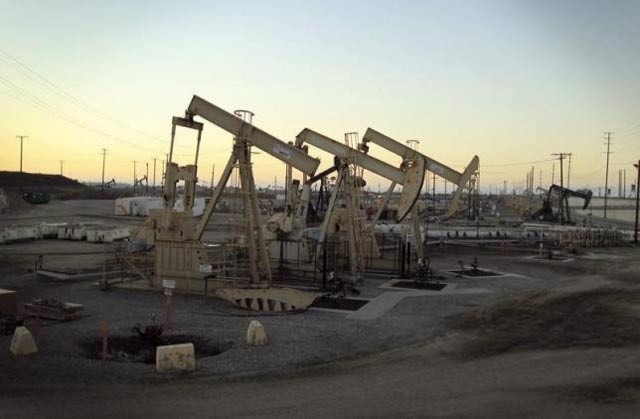Oil prices rise on OPEC+ cuts, record China imports
Both benchmarks; WTI and Brent, hit highest level since March

Both benchmarks; WTI and Brent, hit highest level since March. PHOTO: REUTERS
Brent crude was up $0.49, or 1.2%, at $42.79 per barrel, by 1040 GMT, while US West Texas Intermediate (WTI) crude rose $0.27, or 0.7%, to $39.82 a barrel.
Both hit their highest since March 6 earlier in the session, at $43.41 and $40.44, respectively.
Brent has nearly doubled since the Organisation of Petroleum Exporting Countries, Russia and allies - collectively known as OPEC+ - agreed in April to cut supply by 9.7 million barrels per day (bpd) during May-June to prop up prices that collapsed due to the coronavirus crisis.
On Saturday, OPEC+ agreed to extend the deal to withdraw almost 10% of global supplies from the market by a third month to end-July. Following the extension, top exporter Saudi Arabia hiked its monthly crude prices for July.
Price increases fell short of rallies on Friday.
“Because Saudi Arabia and Russia pre-agreed the outcome of these meetings, it could be argued that the market had reasonable confidence in the outcome once the date of the meetings was set,” BNP Paribas Global Head of Commodity Markets Strategy Harry Tchilinguirian told the Reuters Global Oil Forum.
“As a result, this weekend’s agreement was somewhat priced-in by the close of business on Friday.”
Low prices have drawn Chinese buyers to boost imports. Purchases by the world’s largest crude importer rose to an all-time high of 11.3 million bpd in May.
But consultancy JBC Energy warned higher prices could discourage buying and undercut a fragile demand recovery.
“We cannot shake the feeling that, price-wise, this market has gotten a bit ahead of itself and will need a good confluence of bullish surprises to continue in order to maintain current pricing levels,” JBC said in note.



















COMMENTS
Comments are moderated and generally will be posted if they are on-topic and not abusive.
For more information, please see our Comments FAQ